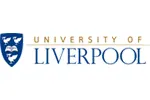

the United Kingdom
University of Liverpool| The award | How you will study | Study duration | Course start | Domestic course fees | International course fees |
|---|---|---|---|---|---|
| MSc | Full-time | 1 year | September | GBP 6162 per year | GBP 15251 per year |
This is a progressive and flexible programme of postgraduate study. There is an overarching theme of advanced practice in healthcare, yet the flexible, modular nature of this award permits healthcare professionals to structure their studies to meet with their own professional needs.
This will provide options for profession specific pathways through the programme if required. These may be clinical, managerial or more generic. Guidance will be provided by the Programme Co-Directors on module choice.
Students can register for an award and there are exit points at Postgraduate Certificate (PGC), Postgraduate Diploma (PGD) and Masters Level. The PGC or PGD may be taken as either free standing awards or as an intermediate exit award for any student who has successfully completed the modules required for these awards or who have failed to comply with the criteria which permits access to the next level of study. However, some students may wish to only register for an individual module for the purpose of continuing professional development. This is permissible and such students will not be registered on the programme.
However, students may accrue credit through taking some stand alone modules and then apply for APL transfer of these credits into the programme for a formal award. All students who undertake stand alone modules will be advised of appropriate combinations which can be mapped into the award.
The programme has one starting point per year: semester one (September), and is part-time. It is modular, with some modules being mandatory and others optional to suit the individual student needs. Teaching takes place in both semesters and the scheduling of the teaching will depend upon the modules taken. There are two assessment points per year (January and May), one at the end of each semester.
On this modular programme students can study stand alone credit rated modules (for which Credit Accumulation and Transfer (CATS) points will be awarded).
Or to achieve a:
As previously stated, the programme is modular and the PGC stage incorporates some compulsory modules and some option modules dependent upon the pathway chosen by the student. The PGD is made up of optional modules although students hoping to progress to the dissertation stage must complete Introduction to Research Methodologies in Health and Social Care (HEAL402) prior to moving to the dissertations stage. The Masters degree is achieved by independent research and the submission of a dissertation.
Below are some suggested courses at other providers that you may also be interested in:
Bachelor of Business Administration BBA
University of Applied Sciences Europe - Amsterdam
Find out moreLeader Communication in a Cross Cultural & Changing World Short Course, Winter School
ESSCA School of Management – Online Programs
Find out moreIf you do not meet the entry requirements for this course then consider one of these postgraduate preparation courses from another institution:
There are 424 other courses listed from University of Liverpool. A selection of these are displayed below:
Advanced Chemical Sciences (Nanoscale with Interfacial Science) MRes, MSc
University of Liverpool
Find out moreAdvanced Chemical Sciences (Nanoscale with Materials Chemistry) MRes, MSc
University of Liverpool
Find out moreAdvanced Chemical Sciences (Organic and Biomolecular Chemistry) MRes, MSc
University of Liverpool
Find out moreAdvanced Chemical Sciences (Organic Chemistry with Catalysis) MRes, MSc
University of Liverpool
Find out moreFind out more about studying in the United Kingdom